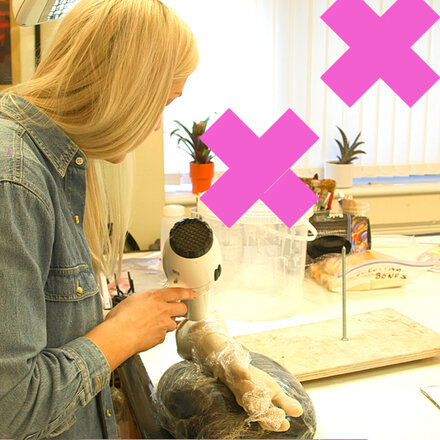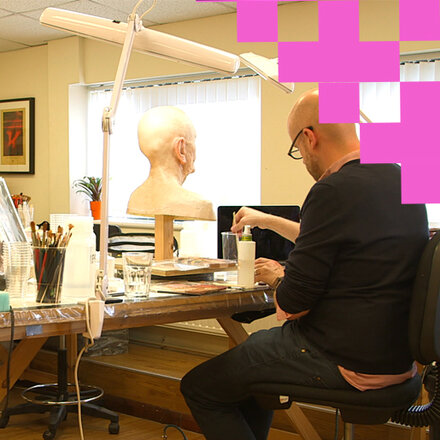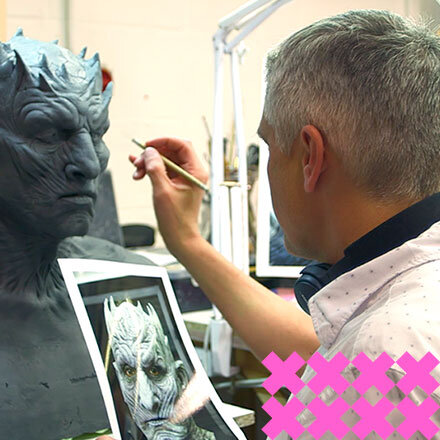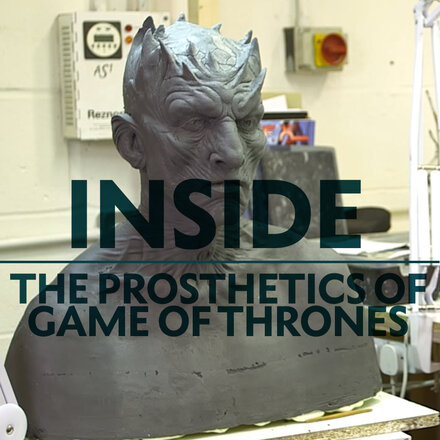The UK visual effects industry is thriving. But that doesn’t mean it’s very big - yet.
“We’re currently only talking about an industry of 3,500 people, which is tiny in real terms,” says Star Wars: The Force Awakens’ art director Kevin Jenkins. “There are some ad agencies who employ that on their own.”
Director of ILM’s studio operations, Sue Lyster, nods in agreement. “We are a major player who has dropped into a limited labour market of highly skilled people,” she says. “We will only get so far by stretching that existing labour force. We have to grow it quickly. There’s a lot still to do in the education sector - there are a lot of courses but it’s a mixed bag.”
“We don’t have enough of the courses that bring on the talent we need in this country, whereas in the States there are a lot more,” Jenkins adds. “There’s not one art direction or concept design course, for example. VFX format, texture painting… anything like that isn’t covered.”
“I did a lot in this area at Framestore,” Lyster continues, “engaging with universities. It’s about finding that killer combination. The danger as an employer is the natural desire to change universities into training schools - we get frustrated that they’re not chucking out people who are production ready. They have constraints to offer a degree as opposed to vocational qualifications, which means they have to have a high level of academic rigour. The best employer-university relationships are where you understand the constraints upon each other. We try and get into universities, and help them to understand what skills will help their students get jobs. One of the exciting things about growing a new company - and the London office has grown from zero to more than 100 artists within a year - is finding new talent. ILM has a wealth of training materials. When an artist joins, rather than just being chucked into a project, we have training plans. It’s a really good starting point for new talent.”
“One thing that really needs addressing is that working in the film industry in general seems like an impossible goal to reach,” says Jenkins. “Parents don’t believe it’s attainable. My dad still doesn’t understand what I do after 20 years! For others there’s no easy through line: “How do I get into the film business?” Some people get in through hard work, some get in through knowing so-and-so a person. My daughter is going into hair and make-up and is going through this very problem right now. It’s still considered like winning the lottery. But you can go and get training, it’s just knowing where to look.”
“Most of the guys of Kevin’s generation, who are at the top of their game, have done pure academic courses,” adds Lyster. “Physics, maths, fine art. I did an economics degree and came out not knowing what the hell I was going to do with it! I then got into the industry through traditional animation, starting, as many do, at the bottom – as a receptionist – and working my way up to a Senior Producer for a London-based animation studio. I stepped into a management role when I joined Framestore in 2004. So, we’ll do ourselves a disservice if we limit our sights only to students who come out of visual effects courses. They tend to emerge with very general skills. That’s great for commercials, but we require people to specialise. We break down the process into a pipeline, and even ask our youngest artists are you a modeller, an animator, do you like lighting? Visual effects students aren’t really prepared for that question because they’re done a bit of everything. And the main problem we find with people who come from visual effects courses, time and time again, is quality. The reality is that an artist will work on 10 shots - or even less - for a whole year, and the level of accuracy and polish that is required is staggering. It’s that marriage for us between quality, creativity and the technical that we aim for. It’s very difficult to get someone who has done physics and knows all about light refraction to think about applying that to making something look really beautiful in 3D IMAX. That’s where it gets interesting.”
What does Lyster and ILM look for when searching for new talent?
“Fundamentally, someone who can work in a team - visual effects is a team sport, more than anything else,” she says. “At the end of the day, education only gets you to a certain point. After that, it’s down to talent and passion. People work really hard here. The reason people give their lives to it is because it’s their passion. It becomes a lifestyle choice more than anything else.
“All the best people I’ve worked in this business bloody love what they do,” says Jenkins.
“I’ve been willing to wave goodbye to talented artists if they have a bad attitude,” says Lyster. “I would always embrace those with passion, those who work hard but may not be the best artists. They are a great part of the team. Those sort of skills you get from going to university. And the academic rigour prepares you for the problem solving required here. To work in this industry, you have to enjoy the excitement of that first meeting with the client where you say, ‘Yeah, absolutely we can do that,’ and then the client leaves the room and all these talented people put their heads in their hands and say, ‘How the f*** are we going to do this?!’ That’s when the fun starts.
“It always gets solved. Always,” smiles Jenkins. “‘Show us something we’ve never seen before. Ever.’ Ha! That is just so exciting. How do you conceive that, how do you do it, how do shoot it, how do you find the right team?”
“It’s our responsibility as employers to clear the mist and shows what jobs are available and how you get into them,” Lyster states. “Because we’re ILM, we get bombarded with emails from kids about to choose their GCSE options. We need to tell them that there are many paths and what those paths look like.”
So is there a way to specifically target ILM through higher education?
“Most of our artists have at least a degree-level education but in a wide variety of subjects – from fine art to pure maths,” says Lyster. “There are a plethora of courses that are vocationally bent towards our industry – Bournemouth, Teeside and York all have excellent courses, but there are many others. But many of our crew have studied subjects such as physics, maths, computer science, then taken a Masters degree that is VFX focussed.”
Read now: BAFTA Interview: Industrial Light & Magic (Part One)





